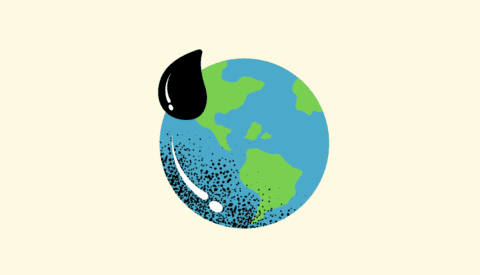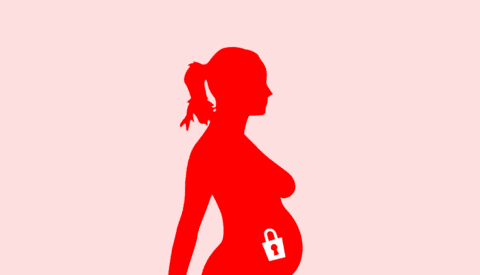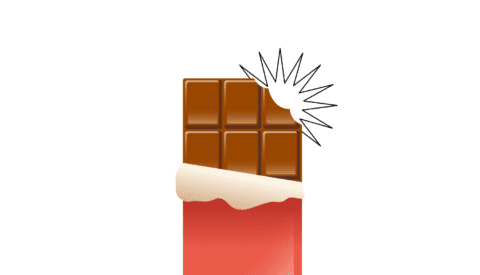Bakhmut Confidential: Whispered Fears, Endgame Visions
In the ambulances transporting the wounded to the field hospitals, in the vans traveling to the front or in the trains returning them home for a few days' rest, the soldiers stationed on the Bakhmut front do not talk about military victories or war strategies. They talk about death, and life.
Article

Article
«I heard the drone above my head and the tank began firing at me. I changed position, heard it again and then it hit me». Andriy waits in the military truck for more injured Ukrainians like himself to arrive. The other ambulance is on its way to the field hospital with a dying soldier. They can’t leave, in case a serious case arrives. Around them, snowy fields. Over their heads, the whistling of shells.
«That explosion is outgoing», explains a soldier. «That one, incoming», he adds, minutes later, when the sound of the explosion startles those present.
Meanwhile, Andriy keeps his gaze on the ground. I can’t tell what he’s looking at, nor guess at what he sees. The paramedic tells him to lie down and rest. Before the war, the Viking-esque man offering him tea was a veterinarian. Now he saves human lives with the same knowledge that helped him prevent epidemics on pig farms.
Oleg Ologkov kneels down, takes Andriy’s shoes off, inserts thermal insoles into his military boots, and covers him with a blanket. Such tenderness between men is hardly seen outside of war.
Seconds later, Andriy, who was reluctant to even lean against the back-rest, dozes in his seat. «As soon as they warm up, sleep overcomes them. They haven’t slept a wink for days. You can’t sleep in the cold», explains Oleg, aware of the surprisingly immediate effect of his care.
In the trenches
Even with the latest military technology, this war is still fought in trenches. The men who shoot and take cover are also bogged down by mud, hunger, sleep, cold, fear and death.
In Ukraine it is trench warfare with hand-to-hand combat, like during the World War I.
Above the roar of bombardments, there is a blanket of silence: the one kept by the soldiers for the still warm bodies of their comrades. Just a few meters from where the patient and medic stand, a corpse wrapped in a black plastic bag waits in the snow to be collected. A pack of dogs comes sniffing around. A soldier runs out to shoo them away.
In Ukraine it is trench warfare with hand-to-hand combat, like during the World War I.
His boots are immediately noticeable. They are not military. Made of light suede, thick and rounded, they give their wearer a yeti-like look. He takes them off to show them proudly. «I bought them in my town where they are made. They are lined with thick sheepskin». His feet are spared the sharp cold of this desolate winter.
Death looms
«The men we transport in the ambulance are afraid of dying. They have seen too many wounded comrades continue walking after being hit, only to suddenly collapse. In that moment of fear, they often talk about their families», says Anna Kovalchuk as she waits for the jeep bringing the patients. We are about three kilometers from the frontline at Bakhmut. From here, two ambulances make the rest of the journey to take them to the nearest field hospital. Anna is Ukrainian and does translation work with the paramedics from the NGO Road to Relief.
The car starts, with two uniformed men sitting on the stretcher. It’s shaken in every direction because of the potholes caused by shelling. The man looking out the window explains that the mortar fell into their trench, that he feels dazed, that something is happening inside of his body. He points to the man with the bandaged head: «He is our superior», he says proudly. His superior says nothing, opening his eyes for a few seconds before closing them again.

An hour later, a soldier with a shrapnel perforation in his groin dies in the ambulance with the volunteers unable to do anything to save him. That the hole is patched with three roles of gauze in less than a minute by a U.S. nurse changes nothing. The shock wave from a mortar has burst his insides. During the fifteen minutes of frantic transfer, the 35-year-old man alternates between screaming in pain and fainting. He hardly breaths. His stomach swells to the point of deformation. It is filled with blood. Rigor mortis begins to set in, drawing out the minutes before he dies.
In the field hospital, a swarm of soldiers carry his stretcher inside, where they pronounce his death. In the corridors of the old municipal building, are dozens of men on crutches, in wheelchairs, with bandaged faces, lying on stretchers in the corridors, sitting on sandbags.
Hope and hopelessness
None of the dozens of people I interviewed in Ukraine have any hope that peace is near. Even less in the Donbas region, where the main fighting is now happening, and where the war began in 2014, following Russia’s annexation of Crimea and the clash between pro-Russian groups and the Ukrainian Army. Many of those who now fear the Russian troop suffered for years from the siege of the Ukrainians. Those elderly who now refuse to leave their homes in cities and villages attacked by the Russian Army only ask that they die in their beds painlessly.
The war has separated thousands of grandparents from their grandchildren
«I don’t want soldiers to settle here, to loot, or cause trouble elsewhere. This is my home and I will not leave», explains Nina Goncharova in her little house on the outskirts of Minkivka, a village a few hundred meters from the Bakhmut front. With her husband, she has decided to stay and defend their home, the last remnant of their lives. Colorful orchids and lilies from the windows stand out against the tanks and the blanket of snow. Inside, dozen of photos of their daughters and grandchildren who keep pleading — when there is phone coverage — that they join them in Dnipro. The war has separated thousands of grandparents from their grandchildren, without knowing if they will ever see one other again.
Like most of the inhabitants of the towns affected by the fighting, the hundred or so people who remain in Minkivka have not received medical assistance for a year. In addition to the ambulance to evacuate soldiers, the NGO Road to Relief has another team of paramedics to aid those who remain in the areas closest to the front line.
Most of them are elderly; a significant number are women, left alone after being widowed. As they do not want to leave, they are given medical check-ups, food, clothes, medicine and an iron stove.
Bringing aid
The team is made up of a Pole, a Frenchman, an American and a Spaniard, Emma Igual, founder of the organization. Every day, they load the van at their headquarters, a rundown mansion on the outskirts of Sloviansk, and drive into the villages bordering Bakhmut. In the glove compartment, there is a photograph of Christopher Parry, a young aid worker who in early January was killed by Russian troops at a military checkpoint alongside his colleague, Andrew Bagshaw, a scientist from New Zealand. A few weeks later, a guided missile took the life of Pete Reed, a former U.S. Marine turned humanitarian worker.
As they cross checkpoints, Ukrainian soldiers wish them good luck. I asked them, in various ways, why they do it, why they take such a risk. They had no prior ties with Ukraine, no religious motivations, they do not consider their actions exceptional, they are not paid, they do not work for a big organization and do not seek media limelight. It is pure humanitarian dedication: doing what needs to be done. What is right. The opposite of heroism.
A woman guides them to an aquamarine-colored house. A kitten jumps out of a bed and escapes through the half-open door. Something moves under the blankets. Igual lifts them. A skeletal old man emits some kind of unintelligible sound. He smells like a human being long malnourished and unwashed. The stove is lit.
The volunteers want to understand what is going on. They ask around until they find the neighbor at a kiosk serving hot drinks to dozens of soldiers
Someone explains that a neighbor visits him daily. The volunteers want to understand what is going on. They ask around until they find the neighbor at a kiosk serving hot drinks to dozens of soldiers. «He has no relatives, we take care of him as best we can, but he doesn’t want to go to the hospital», she explains uncomfortably.
The volunteers carry him on blankets, illuminated by the flashlight of a cell phone. They lay him on an inflatable stretcher on the floor of the van and begin to make their way back. It’s pitch black and anti-aircraft missiles light up the sky like fireworks. They move slowly so that the bumps in the road don’t harm the old man’s frail body. They only come across tanks and military jeeps. Like in nightmares, time slows down when assaulted by horror.
Winners and losers
«Many people are making money from this war. Russians and Ukrainians. People are becoming multimillionaires with the funds sent to help from abroad. They are not interested in seeing this end, and in the meantime we, the poor, suffer», says Gregory Guvenko.
He goes around Kramatorsk every day, repairing electrical installations in bombed buildings and collecting transformers from those that have become uninhabitable. He has been an electrician all his life. Now he is retired and does it voluntarily, because it is all he can do, despite knowing it hardly makes a difference.
The people in the areas most affected by the war are exhausted from rebuilding their country every day
The people in the areas most affected by the war are exhausted from rebuilding their country every day, from shoring it up again after each blow, from putting all their energy into maintaining the electricity and drinking water supply, keeping the public sanitation, garbage collection and health centers running. It is a daily and silent battle to ensure that Ukraine remains a livable place. It is also a battle for the dead.

That’s why excavators also have a new function: uprooting trees, flattening hills and moving stones to expand cemeteries. «We just want this to be over as soon as possible», says Arina after kissing the photo on her son’s grave. Borys was 35 years old, an accountant, and had been in the army for two months when he died fighting. The mound under which his remains lie is still disturbed. He was buried only a week ago. Next to Arina stand her husband and other son. They all arrived together in an old Soviet-era Lada, which has accompanied the majority of their marriage.
«Let peace come now, we don’t want any more dead», insists the old woman, who is reluctant to return to the car. Around her, about thirty faces observe the crosses that adorne each burial site. The yellow and blue flags the government used to decorate the new necropolis glisten under the snowflakes. They haven’t even been here a month. The Donbas is a region of gray concrete cities and once brightly painted villages. The most colorful thing now are the plots for their martyrs, covered with plastic flowers.
A dozen meters away, an undertaker takes refuge in his booth while a military plane breaks the sound barrier overhead. Everything in the war seems to move slowly, except the shells. Soldiers trudge through the snow, tanks lumber along the rails, displaced people pitifully load their belongings into vans and mothers grow old with every step they take towards their children’s graves. There’s nothing more mortifying than asking someone who is going through such colossal grief about their pain. And yet, most of the time, the mourner looks up from their loved ones at the restrained greeting and, from a very distant place, begins to talk. Often, there is no need to ask further. A torrent opens up looking for meaning in the unfathomable. In territories where impunity rules or where it is known that justice will take time, if it comes at all, bearing witness to what should never have happened is, in a way, the only form of reparation.
Let it end
«Let them stop this war by any means necessary. I don’t know how they can, but stop it. Too many people are dying». That was young Vassily’s cry as he rode a Blablacar van back to the Bakhmut front.
He had been in the Army for two years when Russia invaded in 2022. «We didn’t know the war had started. We thought we were going on maneuvers». Since then, the few times he has enjoyed leave to go home to rest, he has felt guilty. «After what I’ve been through this year, I can’t imagine myself anywhere else but in the army. When I was admitted to the hospital I felt terrible that I wasn’t doing anything, that I was there while my friends were fighting. But I don’t think that’s a good thing. When you get used to sleeping in a foxhole and then when you sleep in a comfortable bed, with your girlfriend, you feel guilty».
Vassily is 23, with peach-colored skin and hair, and an empty blue gaze, filled only with sorrow. «At first I was really scared of combat, in the middle of the forest, at night. Then I got used to it. Now I haven’t been afraid for a long time».
Anyone who observes these soldiers as they travel to the front lines can see that there is no serenity in accepting death. There is a kind of abandonment resulting from the lack control over their fates.
Railways, a lifeline
«Of the ten of us in the photo, only I was left fighting. Many were wounded, some I never heard from again». Roman watches videos on his cell phone. The wagon is full of soldiers like him, going to spend a few days of leave at home before returning to the Bakhmut front. They departed from Kramatorsk station, where 59 civilians were killed when it was shelled in April 2022. Most of the victims were carrying suitcases, fleeing to somewhere they would feel safe. Stuffed toys were found among the remains of the carnage. The magenta-colored building has since been completely repaired and, at first glance, it is impossible to find any trace of the attack. The train leaves on time.

The Ukrainian railway network has become one of the symbols of its resistance. It has not stopped working even in the most critical moments of the conflict and has been the main artery that has guaranteed the escape and return of civilians, and the supply of goods in the most besieged regions. In six hours, the soldiers will have left behind the war in Donbas for a few days and will be able to enjoy relative calm in the center and east of the country. Most of them watch series and movies on their cell phones in a closed silence. Some go out for a smoke at each stop. A minority joke quietly with their peers. One carries a large bouquet of roses.
«They called me six months ago and I haven’t stopped digging trenches and building shelters since». Roman never imagined that his skills as a mason would be so highly valued in such a critical time in his country. He proudly shows photographs of the trenches and nests he has built and defended with a rifle on his shoulder. He laughs as he remembers his days of combat while nursing a hangover and falls silent after remembering the comrades he has seen die only meters from him. No one is waiting for Roman at his home in a village on the outskirts of Kyiv. «Nobody talks anymore about when we will win the war. God knows what will have become of me by then. This is my life now,» he concludes, pointing to his uniform.
Peace is the only option
It is Friday night when the train arrives in the Ukrainian capital. Diners enjoy themselves at the outdoor tables of restaurants. Although every now and then a shell manages to dodge the anti-aircraft defenses and reach the city, Kyiv enjoys the illusion of living in a peaceful country.
In Maidan Square, the anti-tank Czech hedgehogs that were used in the barricades are now painted with flowers in memory of the first weeks of March 2022, when the city seemed on the verge of falling into Russian hands. «There are many Ukrainians who are not aware of what we are doing, of what war entails. War is the worst. And they live in regions of the country where they live in peace», Vasily said when traveling to the front on Blablacar.
The unity brought about by the invasion is cracking as the war drags on. And that is happening, especially, with the population that has relatives at the front. Although there are no official figures, the chairman of the U.S. Joint Chiefs of Staff, General Mark Milley, estimated more than 100,000 Russian soldiers were killed in action in 2022. Ukraine has 43 million inhabitants.
«Russia has 140 million people and Putin doesn’t mind sacrificing all those lives. Wagner doesn’t even bury or repatriate its dead soldiers — what can we do against all this?» asks Alexey Bulava. A year ago, this graphic designer from Kyiv longed to fight on the front lines. Now he fears getting the draft call at any moment. «I would have a good chance of dying within a few days».
In the ambulance, none of the wounded soldiers spoke of being willing to die to win the war. The one thing the mothers in the cemeteries did not want to lose was their sons. At the front they know well that peace is the only victory.
This content is part of a collaboration agreement of ‘WorldCrunch’, with the magazine ‘Ethic’. Read the original at this link.






